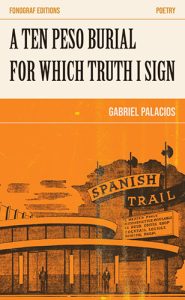Southern Humanities Review – Spring 2005
Volume 39 Number 2
Spring 2005
Quarterly
Christopher Mote
Southern Humanities Review has respect for the questions of moral fabric that challenge a classical, essentialist universe, but it is not strictly a religious journal. Southern Humanities Review has respect for the questions of moral fabric that challenge a classical, essentialist universe, but it is not strictly a religious journal. It is, by all accounts, Southern, and there’s no better place to start than the “stew of religion and sex” of Melissa Delbridge’s memoir, “Family Bible.” An authentic bible is as much a genealogy of this world as it is a guidebook for reaching the next, and Delbridge delivers in her humorous, plaintive, sometimes raunchy and always sincere narrative on her youth. “I was the most frequently baptized child in the state of Alabama,” she says. “The devil did not stand a chance.” Elsewhere, for the morally studious, seek and ye shall find: from the archives, Austrian critic Alexander Lernet-Holenia examines the dimensions of good and evil in a forgotten Italian classic, Manzoni’s The Betrothed, courtesy of John S. Barrett’s English translation. Read the editors’ introductory comments to get an idea of the plot and you may be just as tempted to find out more about Manzoni’s novel. If that’s too lofty, at least one story in SHR is within reach, Sarah Esser’s “Chop-Chop Block.” It begins with an image of a public execution ground—“hazy yellow-brown like a photograph of an old Southern town square where the lynchings took place”—only to take us into a different world, a frighteningly realistic Saudi Arabia where a normal American soldier becomes capable of doing the unspeakable—and the question of evil comes full circle. High-ordered, but worth it. [www.auburn.edu/english/shr/home.htm]




